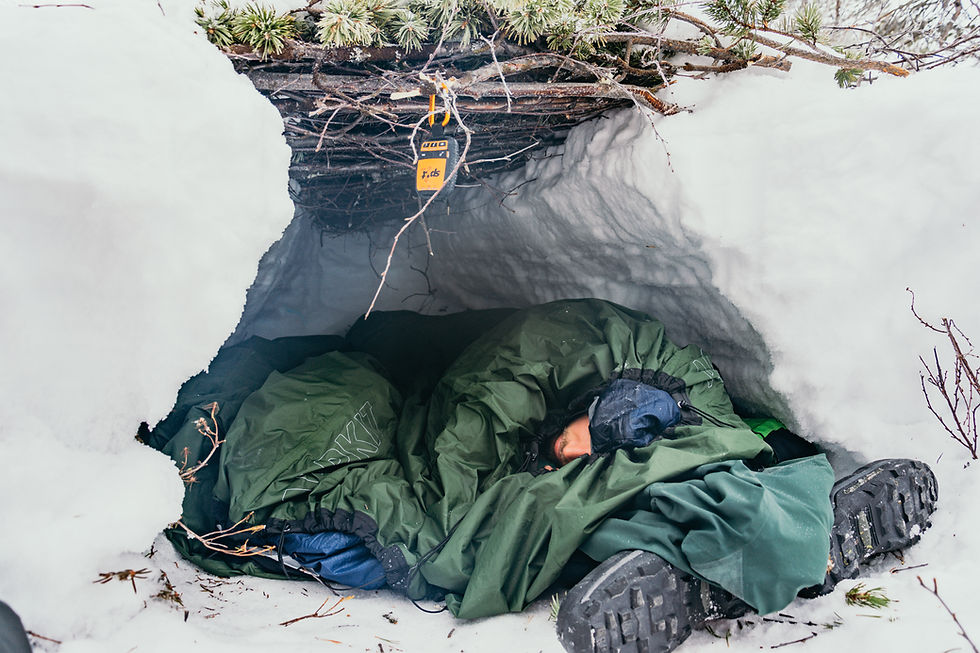Deciding under pressure: What expeditions can teach us about entrepreneurship
- Miel Bonduelle
- May 30
- 3 min read

As an expedition leader, nature is my habitat. Wind, rain, sun, and silence calm my mind. I hardly feel the impact of external stressors. Even hypothermia, sleep deprivation, or hunger have become familiar. I feel like a fish in water.
At home, it’s different. In our business, as founders, we combine strategy with operational responsibilities. Just like on an expedition, the tasks and duties constantly evolve. Only here, at home, it’s not the weather that changes, but the market, the team, or the timing. New challenges arise that demand swiftness and focus. This creates pressure and causes stress. Even then, you must stay sharp, make decisions with limited information, and simultaneously bring peace to your surroundings.
During our expeditions, we teach participants how to check in with themselves. How to manage stress, and how to support others. At home, I practise those same techniques - in my search for balance.
The impact of stress
Under extreme stress, our body switches to ‘fight or flight’. Adrenaline peaks, heart rate speeds up, muscles tense, and our focus sharpens. This response can be life-saving in physical danger, but it is rarely relevant in everyday life.It leads to tunnel vision: you fixate on one problem and lose sight of the bigger picture. You keep mopping with the tap open.Or when you panic: emotions take over, logic disappears. You choose comfort over wisdom and reason, and your working memory shrinks: you need more time and effort to process information.
Stress as a teacher
Stress belongs to challenging contexts. But we can train how to handle it better. To stay rational under pressure. It requires focus, repetition, and above all: acceptance of the process.Everyone moves between three zones: the comfort zone, the stretch zone, and the panic zone. The right techniques help you not only to overcome panic but also perform at your best under pressure.
Visualization (beforehand)
Close your eyes and picture yourself calm and in control. You respond relaxed, speak confidently, and reach your goal. Mentally rehearsing this helps make it more likely you’ll actually act like that. Visualization counts as mental preparation and experience.
Breathing (during)
Conscious breathing lowers your heart rate and calms your nervous system. Ideal as a first reflex in moments of fear or stress.
Communication (support)
Calm communication brings peace. Speak slower, softer, simpler. It’s not what you say that matters most, but how you say it.
Paradigms
A paradigm is how you view the world - often unconsciously. By consciously steering it, you influence how you think, feel, and act.
Step by Step
Focus on the next achievable action. One step at a time.
Optimism
Consciously look for the positive. It creates a lighter, more resilient environment.
Letting Go
Pain, fatigue, disagreements, chaos are all part of the journey. Accepting what you can’t control, helps you save energy.
A business is like an expedition.
Expedition skills are not just a metaphor. They are concretely applicable - in your meeting room, your inbox, and in your leadership approach. Every business is like an expedition - with uncertainties, obstacles, and moments of high pressure. The better you learn to manage stress in nature, the stronger you become as an entrepreneur.
Want to learn more on how to perform better under pressure and take your leadership to the next level? Discover more via the link below.



Comments